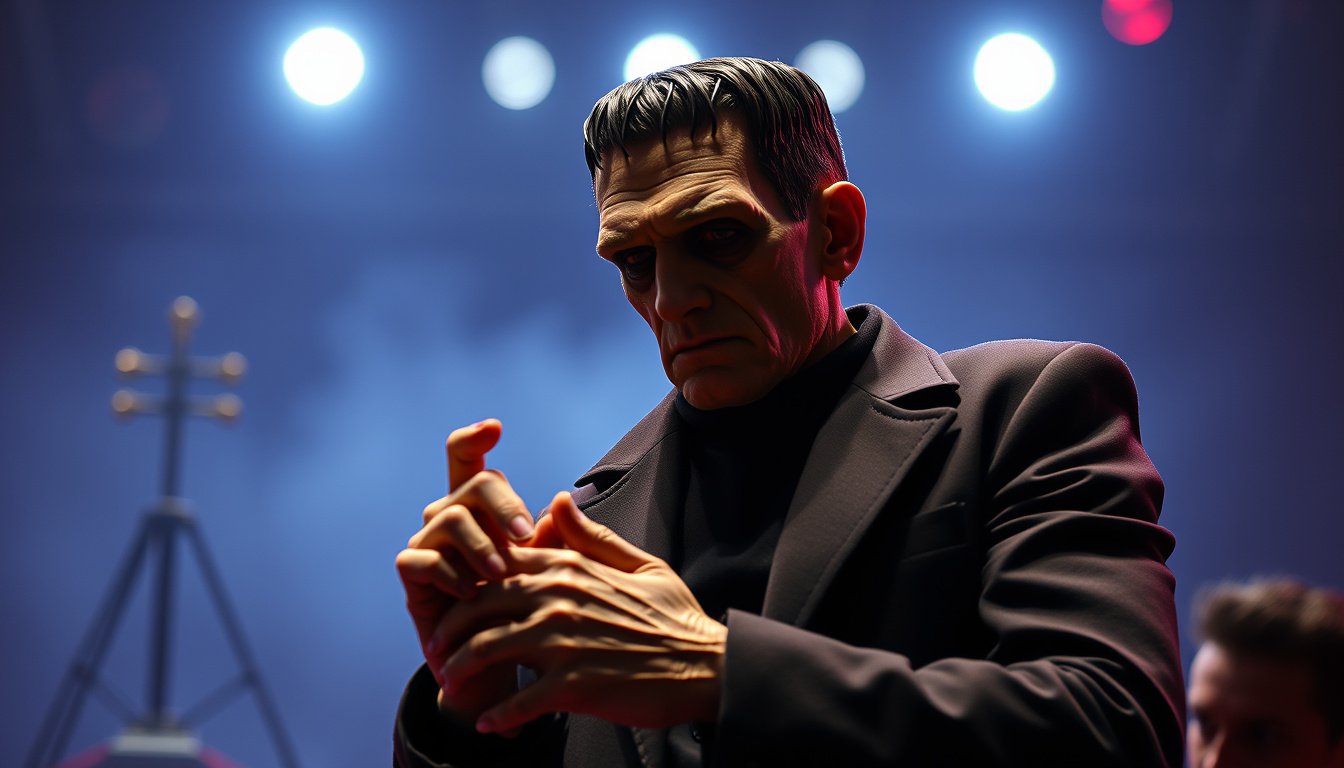Guillermo del Toro is set to make a significant mark at the Cannes Film Festival with his highly anticipated adaptation of Mary Shelley’s classic novel, "Frankenstein." However, del Toro himself has been clear in his intentions to shift the narrative focus away from the traditional horror elements typically associated with the story.
At a recent discussion with renowned composer Alexandre Desplat, del Toro emphasized that his rendition of "Frankenstein" is deeply emotional and personal, centering on themes of parenthood and identity rather than simply eliciting fear. “For me, it’s an emotional story,” del Toro stated, asserting that what he aims to explore transcends mere horror. His focus appears to be a nuanced exploration of the relationships between fathers and sons, raising questions about creation and rejection.
In his conversation, del Toro mentioned that he is moving away from the classic trope of the monstrous figure. Instead, he aims to evoke empathy for the creature at the heart of the tale—symbolizing the misunderstood and the maligned. “I’m not doing a horror movie—ever,” he reiterated, reinforcing his commitment to a film that prioritizes emotional depth over shock value.
As usual, collaboration with Desplat is pivotal, who noted the lyrical quality of del Toro’s cinema fits seamlessly with his own style of music. Their previous collaborations have yielded memorable soundtracks that enhance the storytelling experience, and this upcoming project promises to continue that trend. Desplat added, “The music of ‘Frankenstein’ will be something very lyrical and emotional… I’m not trying to write horrific music,” suggesting a harmonious blend of visuals and sound that complements the thematic aspirations of the film.
Del Toro’s films often reimagine classic narratives through a lens of sympathy for creatures traditionally seen as "monsters." In the past, he has successfully transformed characters that elicit fear into those with whom audiences can connect. For instance, in "The Shape of Water," the creature evolves from a fearsome figure into a deeply moving character, illustrating del Toro’s unique ability to craft emotional resonance in his stories.
The anticipated casting of Jacob Elordi, Oscar Isaac, and Mia Goth adds further intrigue, as these actors bring distinct talents that could enrich the narrative’s emotional landscape. Each has demonstrated the ability to tackle complex characters that require a balance of depth and vulnerability, which aligns well with del Toro’s vision for "Frankenstein."
In summary, Guillermo del Toro’s "Frankenstein" is poised to surprise audiences at Cannes and beyond by prioritizing emotional storytelling over horror tropes, inviting viewers to engage with the material on a more profound level. As del Toro continues to redefine classic stories, his approach promises to deliver a poignant and heartfelt adaptation that speaks to the universal struggles of humanity. With its release on Netflix anticipated for fall 2025, “Frankenstein” is shaping up to be a compelling exploration of love, loss, and the quest for acceptance in a world that often shuns its outcasts.










